Phantom of the Typewriter: Zack Davisson
On Oct. 29, Zack Davisson comes to EvCC to speak about Japanese ghost stories and his new book, Yūrei: The Japanese Ghost. Along with being an author, Davisson is also a Japanese scholar and translator from the Pacific Northwest who has returned to Seattle after living in Japan for seven years.
The Clipper: What began your interest with Japanese culture?
Zack Davisson: My first introduction to Japan and Japanese culture was when I was young—about 9 or 10 years old—when my mother took me to see Kurosawa Akira’s film Seven Samurai. I was captivated. Especially by the Japanese language. It was so different from everything I knew, and I wanted to know more. From there my whole life I have been diving deeper and deeper into Japan, first through films and comics and then into more serious studies.
It was really living in Japan that made all the difference. I realized that until then I had only been skimming the surface of the country, taking in its entertainment. Living in the country, being inside the culture, that’s when I really fell in love.
TC: Why did you decide to move to Japan for seven years?
ZD: I hadn’t intended to go for seven years. I originally went as part of the JET program, planning to stay for a year and then come back to the states. But I ended up re-contracting and staying with JET for five years, then taking on private work for two more years while my wife and I went through the fiancé visa application process.
Even then seven years seems like a short time. There is still so much more in Japan I want to see and do.
TC: When were you first exposed to Japanese ghost stories, and what made you want to learn more about them?
ZD: I’ve always been interested in the supernatural—in folktales and legends and the weird and mysterious. I don’t really know why. When I was young, I obsessed over Greek mythology, and odd bits of world folklore like the Jersey Devil and Spring-Heeled Jack. I had a subscription to Fortean Times.
When I moved to Japan, I realized that it was a country swelling with gods and monsters, with supernatural stories and weird tales. Like the comics of Shigeru Mizuki, and the tales of the Hyakumonogatari. But it was all locked away behind the barrier of language. I started studying Japanese seriously because I knew that was the only way I would get to read everything I wanted to read.
TC: What is your favorite Japanese ghost story?
ZD: My favorite is Botan Dōrō —or I should say Botan Dōrō as told by Ryōi Asai, as there are many different versions. I am a romantic at heart, and the love story of a poor ghost girl and a lonely man finally finding love together touches me more than all of the tales of ghostly vengeance. Even with its horrific finale!
TC: Have you ever witnessed a ghost? If so, how was that experience?
ZD: I’ve never actually seen a ghost, but I have heard and felt them. I lived in a haunted apartment in Japan, so we had regular strange events. I write about that a bit in a book.
A friend and I once had a ghostly experience in Hasedera Temple in Nara. We thought it would be fun to go to the temple at night. This is a temple famous for its famous staircases—it is a pretty long haul to get up to the top climbing under this covered walkway. As we got further and further to the top, we were scaring each other a little telling ghost stories and such. And when we made it to the top, we suddenly heard a big thud on the top of the walkway. Without a word we both turned around and started running down the stairs out of the temple. We could hear the thing on the roof chasing after us all the way down. It stopped when we left the temple grounds, but when we looked up to the roof there was nothing there.
TC: Did growing up in the Pacific Northwest influence your admiration for the paranormal?
ZD: Absolutely! The Pacific Northwest is a great place for weird tales. Bigfoot, The original flying saucer encounters. Ghosts. I was into all of that. When I went to college my anthropology professor was also a Bigfoot hunter. He kept a shed out back with hair and stool samples, foot casts, etc … he was completely serious and I loved it.
TC: Do you have any favorite ghost stories from the Pacific Northwest?
ZD: Not a specific favorite, although I love some of the haunted places. I love the stories of the Harvard Exit Theater on Capitol Hill. And when I used to work at the PacMed building for Amazon, we had our ghost stories. There was a ghost we named “Rose” that was said to haunt the building. We named her that after the perfume she wore; every now and then you would enter a stairwell or empty corridor, and get the distinct smell of roses, even though no one else was there. Or you would be working a late shift and sitting at your desk, when the smell of roses would come wafting by. That’s how we knew she was there.
TC: What made you decide to begin writing books about Japanese ghosts?
ZD: Basically I am writing the books I wanted to read. They didn’t exist, so I had to write them myself. There is so much to know about Japanese ghosts, so much fascinating folklore and stories, but they are all locked away inside the Japanese language. You need to either get inside the language itself, or have a translator provide you with the key. I decided to make it my mission to get as many of these wonderful stories into English as possible for people to discover and enjoy.
TC: What do you think have been your greatest accomplishments in your career so far?
ZD: Well, I would like to say my book Yurei: The Japanese Ghost, but it is still a few weeks from publication. That is my major work, a beautiful hardcover coming out from Chin Music Press. It has all of my ghost studies, along with dozens of stories I translated.
Other than that, my translation of the four-volume Showa: A History of Japan is a major accomplishment, and by far the most challenging thing I have translated. It was written by Shigeru Mizuki, who is unparalleled in his work in yōkai—Japanese monsters—and traditional folklore in Japan. It was Shigeru Mizuki who revived the yōkai after WWII and brought them into modern Japan.
Aside from him folklore work and his popular comic book series Kitaro, Shigeru Mizuki fought in WWII and lost his arm on the island of Rabaul. He is extremely anti-war, and wrote Showa: A History of Japan so that the children of Japan could never forget the price that was paid to get them the current peaceful country they enjoy.
I’m also ridiculously proud of my work on the comic Wayward from Image Comics. As a lifelong American comic book fan, being part of a monthly comic is a thrill. I write back-up essays on Japanese folklore than support the story, along with yōkai monster files.
TC: What do you want people to know about Japanese ghost stories?
ZD: That they are different—fundamentally different. Japanese ghost stories aren’t just Western ghost stories with different costumes and funny names. By their very nature, ghost stories come from the predominate religion of that country. And Japan’s stories come from the Buddhist/Shinto mélange religion unique to the country. As to everything else I want people to know—you have to read the book!
*****
The Japanese Club is sponsoring this event which will be held in Henry M. Jackson Center at noon on Oct. 29. Admission is free and open to the public. Davisson will participate in a panel discussion, answer questions from the audience, and sign books. Yūrei: The Japanese Ghost is now available for preorder on Amazon.

How did you get here?
I took Journalism 101 in spring 2014, and realized that I was interested in pursuing it as a career. Andrew became my advisor,...

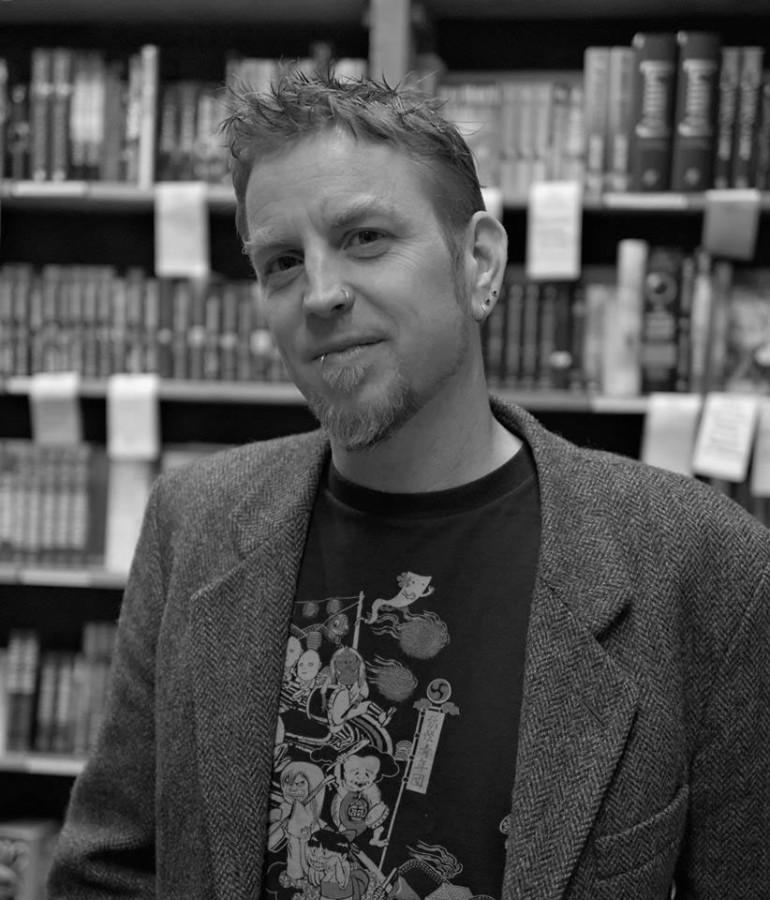
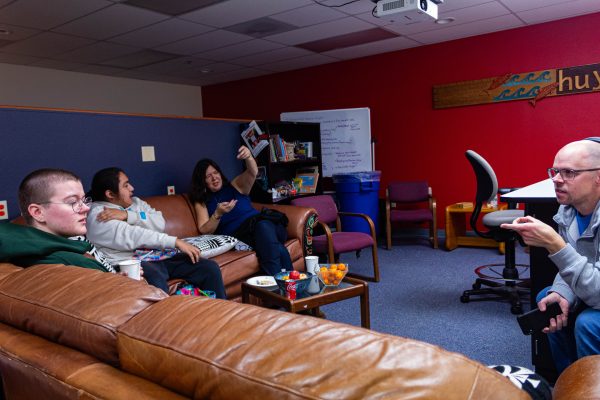
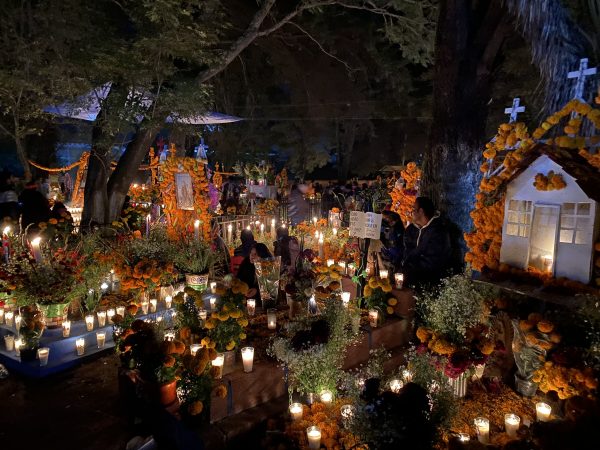
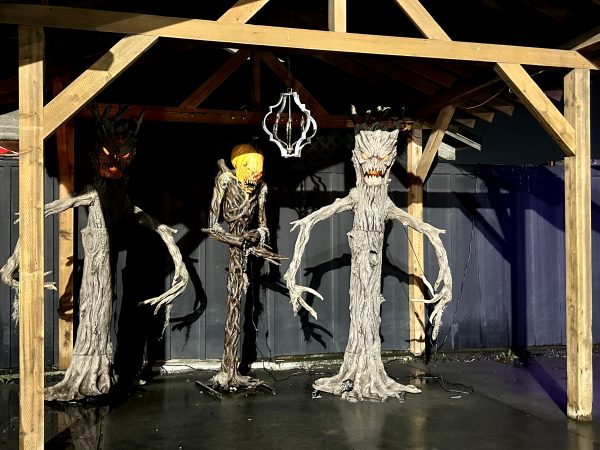
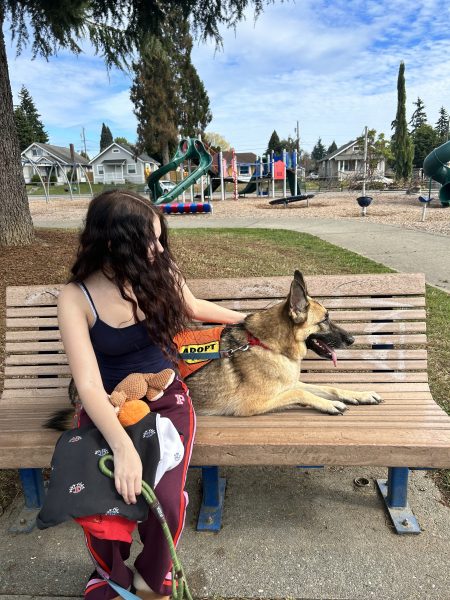
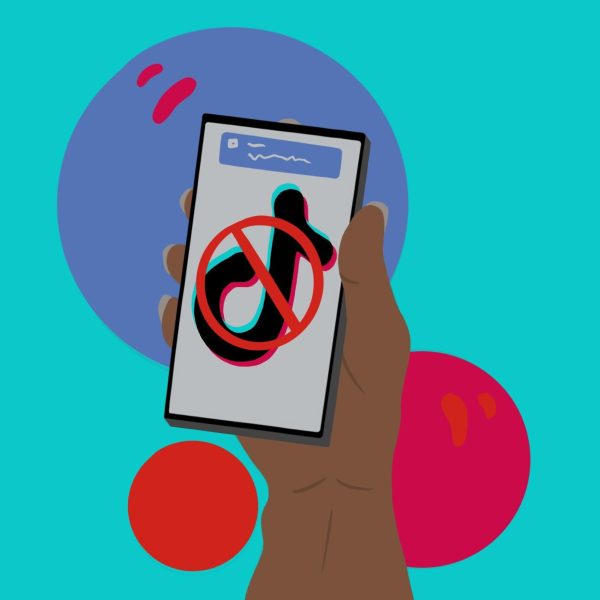
Richard • May 20, 2016 at 11:07 am
Wow. I’m a year and a half late reading this interview. I can’t believe no one commented on this yet. Stephanie Davey asked all the right questions, and Zack Davisson’s answers were exquisite. Really broke through all the standard Halloween fare one usually has to put up with this time of year. Wonderful piece on so many levels. Kept my interest all the way. I’m so sorry I missed his presentation.